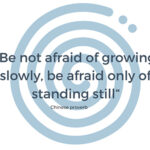| July 2022 |
HOW DO I PREPARE FOR A JOB INTERVIEW?

Representing yourself well at the interview stage takes preparation.
WRITTEN BY: Laura Biggs
It’s interesting how different people view interviews. Some people find them extremely daunting; others enjoy the opportunity to present themselves verbally rather than on a cover letter or resume.
Whatever your thoughts are, the outcome of an interview can be seriously improved by doing your research. So, what preparation should be done beforehand?
This depends, in part, in how long since you last had an interview. If it has been years since you interviewed, it is worth updating or refreshing your knowledge of different interview styles and techniques. Some roles have a much higher component of assessments prior to interviews, others focus heavily on behavioural questions, others on answering questions in a video format.
It is worth running through common interview questions. Our experience is that candidates tend to practice their responses ‘in their heads’. While this is a useful first stage, we highly recommend practising your responses ‘aloud’. There is a difference between knowing a response and being able to verbalise it in an interview setting.
Particularly focus practising responses to questions that allow you to demonstrate your skills and experience, in providing examples of achievements or where you have provided value to the company you have worked for. Having assisted hundreds of people to prepare for interviews we find assisting them to provide concrete examples supports their success. Without preparation the interview can turn into the interviewer trying to find specific examples and the interviewee providing more and more general information. Specific, tailored examples as responses is the key.
In attempting to anticipate probable interview questions you need to look at the job description / selection criteria / advertisement provided as well as more general, typical questions. The core responsibilities / competencies / requirements are usually spelt out; a prepared candidate should be able to confidently explain how their experience not only means they have the competencies for the job but also how they have exceeded expectations (where possible) using these skills and experience.
Most candidates have a few ‘tough interview questions’ which they feel nervous about responding to. Or questions they feel worried about asking. Often, they involve salary or reasons for leaving. It is important to think these through and to practise them with someone who is experienced at interviewing. It particularly helps if they know the industry you are interviewing in.
“I WANT TO FEEL CONFIDENT IN HOW I PRESENT MYSELF FOR THIS OPPORTUNITY……”
Feeling nervous about interviewing is common. People often ask if they can bring notes to an interview. It is far better to practise your responses until you feel confident. You can’t anticipate every question but if you understand what the interviewer is looking for and have practised providing examples you will come across as a more confident applicant for the role.
The other component to interview preparation is doing your research on the company, the role and the interviewers. Depending on the company, industry and the seniority of the role we recommend researching the website in detail, particularly projects / service specialisations / sites / initiatives, any recent news, the vision, the careers page, background on the particular team as well as making sure you know the name of the CEO!
A lot of companies are recruiting on values, so it is important that you can articulate why you are interested in the role, how your values align with those of the company as well as being able to demonstrate your skillset. Understanding the interviewers, their roles and their history with the company as well as their interests can help make the human connection easier.
It is also important to remember while preparing for interviews that it is a two-way street. You are assessing the company as much as they are assessing you. My guidance is that I want to prepare as if the role is ideal and I can choose whether to proceed my application or not. These days people often interview for one role and through an interview process the role or opportunity can change. Presenting yourself in the best way means you can take advantage of this.
At Empowered Decision we have a twenty-page document filled with tips and information that can help you prepare for an interview, written with the insight gained from a combined fifty years in the recruitment industry. For a free copy email connect@edecision.com.au
HOW DO I PREPARE FOR A JOB INTERVIEW?

Representing yourself well at the interview stage takes preparation.
WRITTEN BY: Laura Biggs
It’s interesting how different people view interviews. Some people find them extremely daunting; others enjoy the opportunity to present themselves verbally rather than on a cover letter or resume.
Whatever your thoughts are, the outcome of an interview can be seriously improved by doing your research. So, what preparation should be done beforehand?
This depends, in part, in how long since you last had an interview. If it has been years since you interviewed, it is worth updating or refreshing your knowledge of different interview styles and techniques. Some roles have a much higher component of assessments prior to interviews, others focus heavily on behavioural questions, others on answering questions in a video format.
It is worth running through common interview questions. Our experience is that candidates tend to practice their responses ‘in their heads’. While this is a useful first stage, we highly recommend practising your responses ‘aloud’. There is a difference between knowing a response and being able to verbalise it in an interview setting.
Particularly focus practising responses to questions that allow you to demonstrate your skills and experience, in providing examples of achievements or where you have provided value to the company you have worked for. Having assisted hundreds of people to prepare for interviews we find assisting them to provide concrete examples supports their success. Without preparation the interview can turn into the interviewer trying to find specific examples and the interviewee providing more and more general information. Specific, tailored examples as responses is the key.
In attempting to anticipate probable interview questions you need to look at the job description / selection criteria / advertisement provided as well as more general, typical questions. The core responsibilities / competencies / requirements are usually spelt out; a prepared candidate should be able to confidently explain how their experience not only means they have the competencies for the job but also how they have exceeded expectations (where possible) using these skills and experience.
“I WANT TO FEEL CONFIDENT IN HOW I PRESENT MYSELF FOR THIS OPPORTUNITY……”
Feeling nervous about interviewing is common. People often ask if they can bring notes to an interview. It is far better to practise your responses until you feel confident. You can’t anticipate every question but if you understand what the interviewer is looking for and have practised providing examples you will come across as a more confident applicant for the role.
The other component to interview preparation is doing your research on the company, the role and the interviewers. Depending on the company, industry and the seniority of the role we recommend researching the website in detail, particularly projects / service specialisations / sites / initiatives, any recent news, the vision, the careers page, background on the particular team as well as making sure you know the name of the CEO!
A lot of companies are recruiting on values, so it is important that you can articulate why you are interested in the role, how your values align with those of the company as well as being able to demonstrate your skillset. Understanding the interviewers, their roles and their history with the company as well as their interests can help make the human connection easier.
It is also important to remember while preparing for interviews that it is a two-way street. You are assessing the company as much as they are assessing you. My guidance is that I want to prepare as if the role is ideal and I can choose whether to proceed my application or not. These days people often interview for one role and through an interview process the role or opportunity can change. Presenting yourself in the best way means you can take advantage of this.
At Empowered Decision we have a twenty-page document filled with tips and information that can help you prepare for an interview, written with the insight gained from a combined fifty years in the recruitment industry. For a free copy email connect@edecision.com.au











